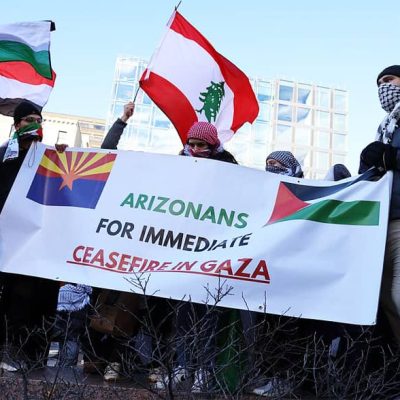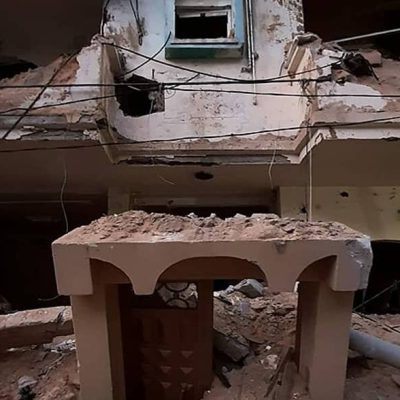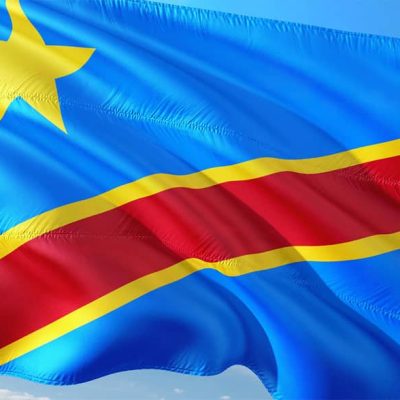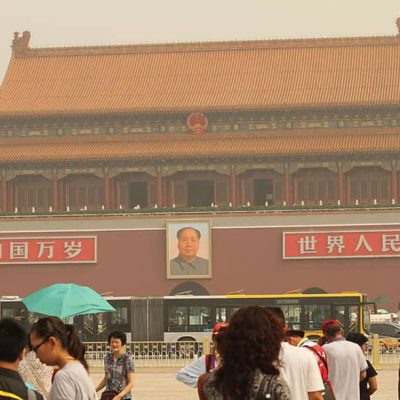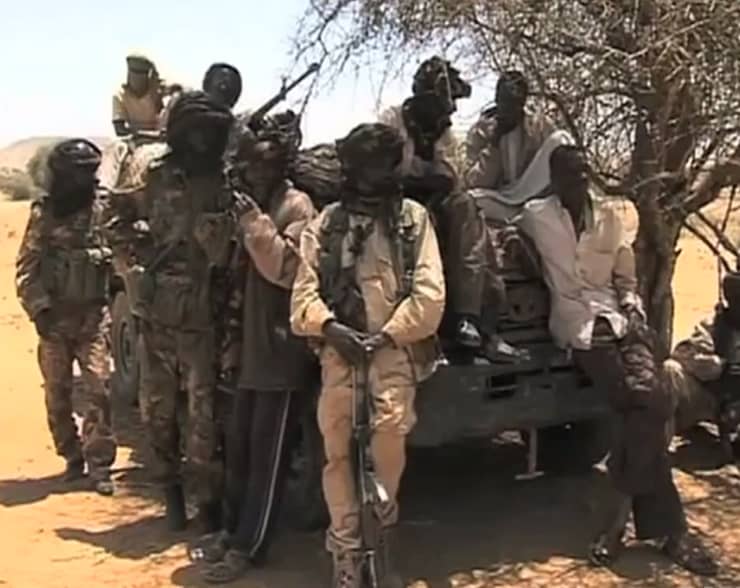 Appeals
Appeals
Renewed Violence in Darfur: An Unstable Sudan.
Featured Image: Pro-government militia in Darfur. By Henry Ridgwell, Public domain, via Wikimedia Commons.
24 April 2022; saw renewed violence in the Darfur Provence of Sudan between Arab militias and the indigenous tribes of the area, the Masalit and the Fur. The violence began in 2003 and has caused some 300,000 deaths and some three million displaced. While most of the fighting was when General Omar al-Bashir was President; his overthrow by new military leadership has not fundamentally improved the situation.

Omar Hassan Ahmad al-Bashir, the president of Sudan, listens to a speech during the opening of the 20th session of The New Partnership for Africa’s Development in Addis Ababa, Ethiopia, Jan. 31, 2009. By U.S. Navy photo by Mass Communication Specialist 2nd Class Jesse B. Awalt/Released, Public domain, via Wikimedia Commons.
Darfur Conflict.
Darfur is the western edge of Sudan. Its longist foreign frontier is with Chad; but communication with Libya is easy for camel herders and gunrunners. To the south lies the Central African Republic – a state with a very unstable government; which feels the fallout from the Darfur conflict. Darfur served as a buffer area between the French colony of Chad and the English-held Sudan until 1916; when French-English rivalry was overshadowed by the common enemy, Germany, in World War I. Darfur; which had been loosely part of the Ottoman Empire; was integrated into Sudan with no consultation either with the people of Darfur or with those in Sudan.
Thus; Darfur was always the neglected child in Sudan – a child no one had asked to be there. Only after 1945 were some development projects undertaken; but basically Darfur remained an area of pastoralists – some tribes specializing in camels and others in cattle – and settled agriculturalists. Camel and cattle-raising tribes from Chad would move into Darfur and vice-versa. There were frontiers between tribes; but they did not correspond to state boundaries.
The Black Book: Imbalance of Power and Wealth in Sudan.
In May 2000; intellectuals and government civil servants from Darfur; calling themselves the Seekers of Truth and Justice wrote The Black Book: Imbalance of Power and Wealth in Sudan. The study ended with specific recommendations for governmental and social action. While the book was widely read; it produced no new initiatives in sharing power or wealth. Some leaders in Darfur had the impression that the government was withdrawing services; especially in health and education. Schools were closed; and the number of children in school decreased.
After the failure of the intellectual efforts of The Black Book; the conviction that only violence was taken seriously started to grow among Darfur leaders. They started thinking about a strategy of a sharp; and swift show of violent strength that would force the government to negotiate with Darfur. The insurgency in Darfur began in the Spring of 2003. As Julie Flint and Alex de Waal point out in their useful history of the start of the Darfur war “Darfur’s rebels are an awkward coalition of Fur and Masalet villagers, Zaghawa Bedouins out of patience with Khartoum; a handful of professional who dared to take on leadership. Few of Darfur’s guerrillas had military experience or discipline before they took up arms.
The two main rebel groups are united by deep resentment at the marginalization of Darfur; but are not natural bedfellows and could easily be split apart… In the first months of 2003, these half-formed and inexperienced rebel fronts were catapulted out of obscurity to face challenges for which they were totally unprepared.” (1)
Islamic Legion.
The government in Khartoum was also unprepared for the Darfur insurgency. The government’s attention, as well as the bulk of the army, was turned toward the civil war in the south of Sudan. The government turned the fight against the Darfur movements to its security agencies – a narrow group of men uniterested in internal politics or external relations.
They decided to use the air force to bomb villages; and to use foreign troops to do the fighting on the ground. The foreign troops came from Libya. Colonel Gaddafi had created in the early 1980s an “Islamic Legion” and recruited militiamen from Mauritania, Chad, Mali in his efforts to create a union of Libya and Chad – or to annex part of northern Chad. When Gaddafi’s Chadian interests faded at the end of the 1980s; the Islamic Legion soldiers were left to look after themselves and so were ready to work for new paymasters.

Muamar Muhamad Abu-minyar el Gadafi. By U.S. Navy photo by Mass Communication Specialist 2nd Class Jesse B. Awalt/Released, Public domain, via Wikimedia Commons.
The Evildoers on Horseback.
The Sudanese security people brought the Islamic Legion soldiers to Darfur; gave them weapons but no pay. They were to pay themselves by taking what they could from the villages they attacked. In addition; prisoners from Darfur’s jails were released on condition of joining the militias. Rape of women and young girls was widely practiced both as a means of terror and as a “reward” for the fighters; since they were not paid. These militias became know as the Janjaweed (“the evildoers on horseback”.)
Although the Darfur conflict has largely faded from the media headlines; it continues producing many refugees, internally-displaced persons, unused farmland and political unrest. The conflicts in Darfur have destroyed many of the older patterns of dispute settlement among groups; as well as much of the economic infrastructure. The social texture and trust among groups is likely to be more difficult to rebuild than homes, livestock and water wells.
The joint African Union – United Nations peacekeeping force has not been able to produce peace. Peacekeeping forces need a peace to keep; and while there have been lulls in fighting; there has been no peace to keep. Banditry, criminal activities and periodic military action continues. It is impossible to know if the current outbreak of armed violence has local causes; or if it is a reflection of instability at the central government level. The situation in Darfur remains critical and needs to be watched closely.
Note.
1) Julie Flint and Alex de Wall. Darfur: A Short History of a Long War (London, Zed Books, 2005).
Rene Wadlow, President, Association of World Citizens.

President, Association of World Citizens (AWC).
Estudied International relations in The University of Chicago.
Estudied Special Program in European Civilization en Princeton University
Here are other publications that may be of interest to you.
Burma’s Crumbling Junta
February first marked the anniversary of the military coup which overthrew the government of Aung San Suu Kyi in 2021. She was in practice the leader of the government but…
Preventing the Expansion of the Gaza Conflict: Are Peace Brigades a Possibility?
Antony Blinken, the U.S. Secretary of State, has been again in the Middle East working to prevent the violence of the Gaza Strip of spreading to much of the area. …
World Citizens Call for an Inmediate End to Hostilities between Israel and Hamas, and for a Genuine Peacebuilding Effort in the Middle East.
Featured image: The impact of the Israeli bombing on a civilian building in Gaza (2021). By Osama Eid, CC BY-SA 3.0 https://creativecommons.org/licenses/by-sa/3.0, via Wikimedia Commons. The AWC, a Nongovernmental Organization…
World Humanitarian Day: A Need for Common Actions.
Featured Image: Photo by Wylly Suhendra on Unsplash. The United Nations General Assembly has designated 19 August as “World Humanitarian Day” to pay tribute to aid workers in humanitarian service…
Peace Planners: Awake!.
Featured Image: Photo by Eddie Kopp, Unsplash. The recent NATO Summit in Vilnius is an indication that the war planning community is busy at work in the spirit of Von…
Track Two Efforts Needed to Reduce China-India Frontier Tensions.
Featured Image: Arunachal Pradesh – India. Photo by Unexplored Northeast, Unsplash. There has been a constant buildup of military forces by the governments of both India and China along their common frontiers. …
Democratic Republic of Congo: Sky Getting Darker.
Photo by jorono, Pixabay. The armed conflict in the eastern area of the Democratic Republic of Congo (RDC) on the frontier with Rwanda seems to be growing worse and is…
World Refugee Day.
June 20 is the United Nations (UN)-designated World Refugee Day; marking the signing in 1951 of the Convention on Refugees. The condition of refugees and migrants has become a “hot”…
4 June: Memories of Tiananmen Square.
4 June makes the security forces in China somewhat uneasy, especially in Hong Kong where, in the past, there were large memorial meetings tp remind people of 4 June 1989…
International Day of the Oceans.
Featured Image: Photo by Marek Okon, Unsplash. Progress on Asian Maritime Delimitations Needed. 8 June has been designated by the United Nations General Assembly as the International Day of the Oceans to…

